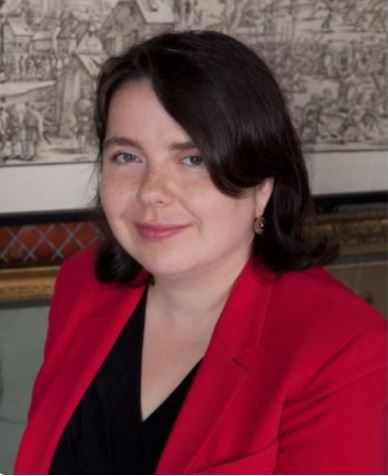
What is your current profession/job? What did you study at Yale? When did you graduate?
As of March 1, 2017, I am the George Amos Poole III Curator of Rare Books and Manuscripts at the Newberry Library in Chicago, IL. I received my PhD in 2006 from Yale in the History of Art.
What do you like most about your current role? What do you find most challenging and/ or rewarding?
While I have worked in a variety of special collections and museums (and spent the previous eight years as an assistant curator, among other roles in the Department of Prints and Drawings at the Art Institute of Chicago), I wanted to move to a smaller-scale institution with a deep love for the humanities, especially one where I could be involved in all aspects of research and public service. Some of these include acquiring and exhibiting books, prints, and manuscripts, and bringing them to life through tours, and for those unable to come to the Newberry, through social media. Learning my way around the massive collection has been a challenge and a joy, and I am thrilled to have just begun proposing books for acquisition! (For more on the literary wayfinding.)
How did your time at Yale shape your career trajectory?
The opportunity to hone some of the ideas for my dissertation (on the Renaissance Pop-Up Book) through a short-term exhibition at the Beinecke Rare Book and Manuscript Library was very helpful indeed. While I initially focused on finding a print room job in a museum, given the nearby treasures of the Beinecke, I also kept my options open for the right curator job in a major library, and had considered getting an MLS in addition to the PhD.
What are the main skills that you acquired as a PhD student which help make you successful in your current career?
The required languages opened doors, sometimes literally, depending on the German collection I needed to access. The ability to dig through libraries and museums to find the unusual and overlooked definitely came out of writing a dissertation on books and prints with moving parts (flaps and dials). The varying terminology alone made for a great deal of searching through online catalogues the world over. Taking several Rare Book School classes (camp for book nerds) and spending a month in a summer course on alchemy at the Herzog August Bibliothek in Wolfenbüttel, Germany, didn’t hurt either, as a complementary collection to the Beinecke.
Did you acquire any professional experience related to your line of work while in graduate school?
I was a summer intern at the National Gallery of Art just before starting at Yale. In addition to the Beinecke exhibition, I was also an intern in several departments in the Yale Art Gallery, especially in the Print Department with Suzanne Boorsch working on a drawings exhibition. I was also able to attend and speak at a number of professional conferences to solicit feedback on my work in progress (especially the Renaissance Society of America and College Art Association).
What advice would you offer PhDs who are interested in your line of work?
Regardless of the form of special collection, whether museum, library, or anything else, the objects come first. If you can be satisfied lecturing from slides without consulting original objects, perhaps teaching is for you after all. It was never a question of that for me; I can teach an occasional session in an exhibition or in a study room, but run out of inspiration when gesturing before a screen. Books and single-sheet prints are three-dimensional things with a life and a history all their own, and without appreciating their materiality and production history, much is lost in translation.
